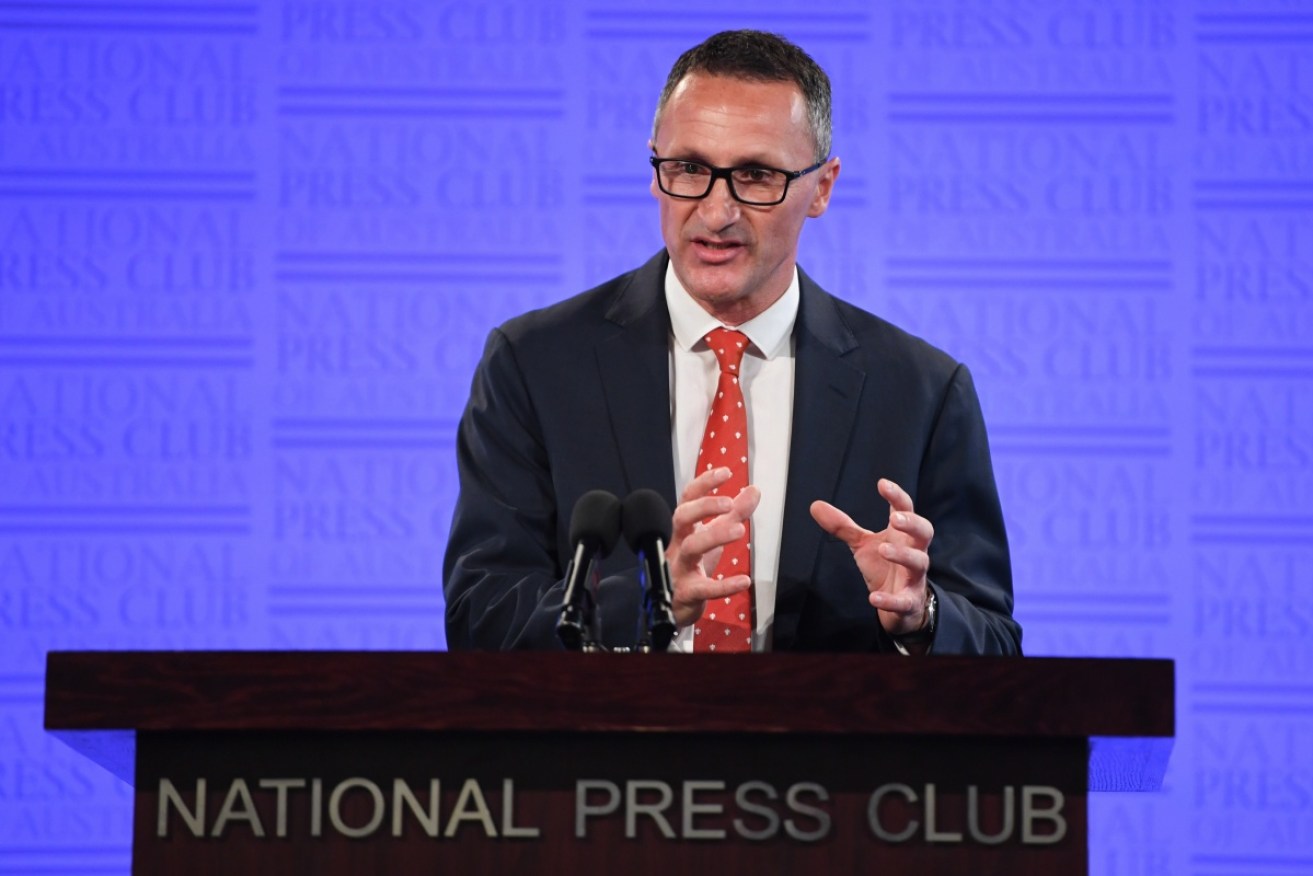Calls are mounting for a ‘people’s bank’

Greens leader Richard Di Natale has held the party's top job since May 2015. Photo: AAP
Economists have backed the Greens’ proposal of a government-owned bank to pull the scandal-ridden Big Four into line, with one calling for the party to go even further.
“The time has come for a people’s bank, one that injects real competition into the banking sector,” Greens leader Richard Di Natale told the National Press Club on Wednesday.
The idea has a long history in Australia, dating back to the creation of the public-owned Commonwealth Bank in 1911, when Labor prime minister Andrew Fisher famously declared it would be “a bank belonging to the people and directly managed by the people’s own agents”, with the aim “not to make profits, but to ensure safety and security to depositors”.
Senator Di Natale drew on the successful example of state-owned KiwiBank in New Zealand. Copying the idea in Australia would boost competition, push down fees, help young buyers enter the property market and deter “unscrupulous behaviour”, he said.
In 2009, during the global crisis, six economists wrote to the Rudd government proposing solutions to problems in banking – including a “publicly-owned entity” that would offer “essential” financial services.
The signatories were former ACCC commissioner Stephen King, economist and fund manager Christopher Joye, and academic economists Sam Wylie, Joshua Gans, John Quiggin and Nicholas Gruen.
Professor Quiggin told The New Daily there remains “an obvious case for a low-cost, public bank” that only sells simple products like savings accounts and home loans.
“If you look at a lot of the bank misconduct, a large element is precisely due to the mixture between their deposit taking institution and then attempting to provide a whole range of financial services of dubious value.”
Another of the signatories, Professor Joshua Gans, told The New Daily the idea is “still a sound one” and that recent technological advances – such as Bitcoin’s Blockchain – make it even easier to implement.
“I think there is scope for either a government entity or alternatively a new class of regulated financial institution that could serve this purpose,” said the academic, who is now at The University of Toronto.
“Basically, the new class would not be permitted to issue loans beyond reserves and so would be much safer. It wouldn’t be a high return savings option but it would be something focussed on transactional efficiency.”
Professors Paul Kofman and Carsten Murawski, economists at Melbourne University, have also supported the idea.
Dr Nicholas Gruen at Lateral Economics went even further by proposing that Australians be allowed to deposit money directly with the Reserve Bank.
“Central banks currently provide wholesale banking to the banking sector, which then retails it to the population. But in the age of the internet, everyone could have an account with the central bank,” Dr Gruen told The New Daily.
Account holders would be able to make online transactions and would earn the official cash rate in interest, he said.
“It’s still a people’s bank, but it would hugely transform banking. Commercial banks could only exist where they added value, rather than just reselling the services of the central bank with hefty margins.”
The Bank of England modelled a similar proposal and found it could permanently boost the United Kingdom’s GDP by as much as 3 per cent, while also smoothing out some of the booms and busts in the business cycle.
However, Australian Bankers Association chief economist Tony Pearson told The New Daily the benefits of a government-owned bank were “unclear” because the market is already “dynamic and competitive”.
“There is a lot of competition and choice in financial services, with around 3500 housing loans, 1300 deposit accounts, 196 credit cards, and 185 business lending options on offer, and 145 authorised deposit-taking institutions.”








